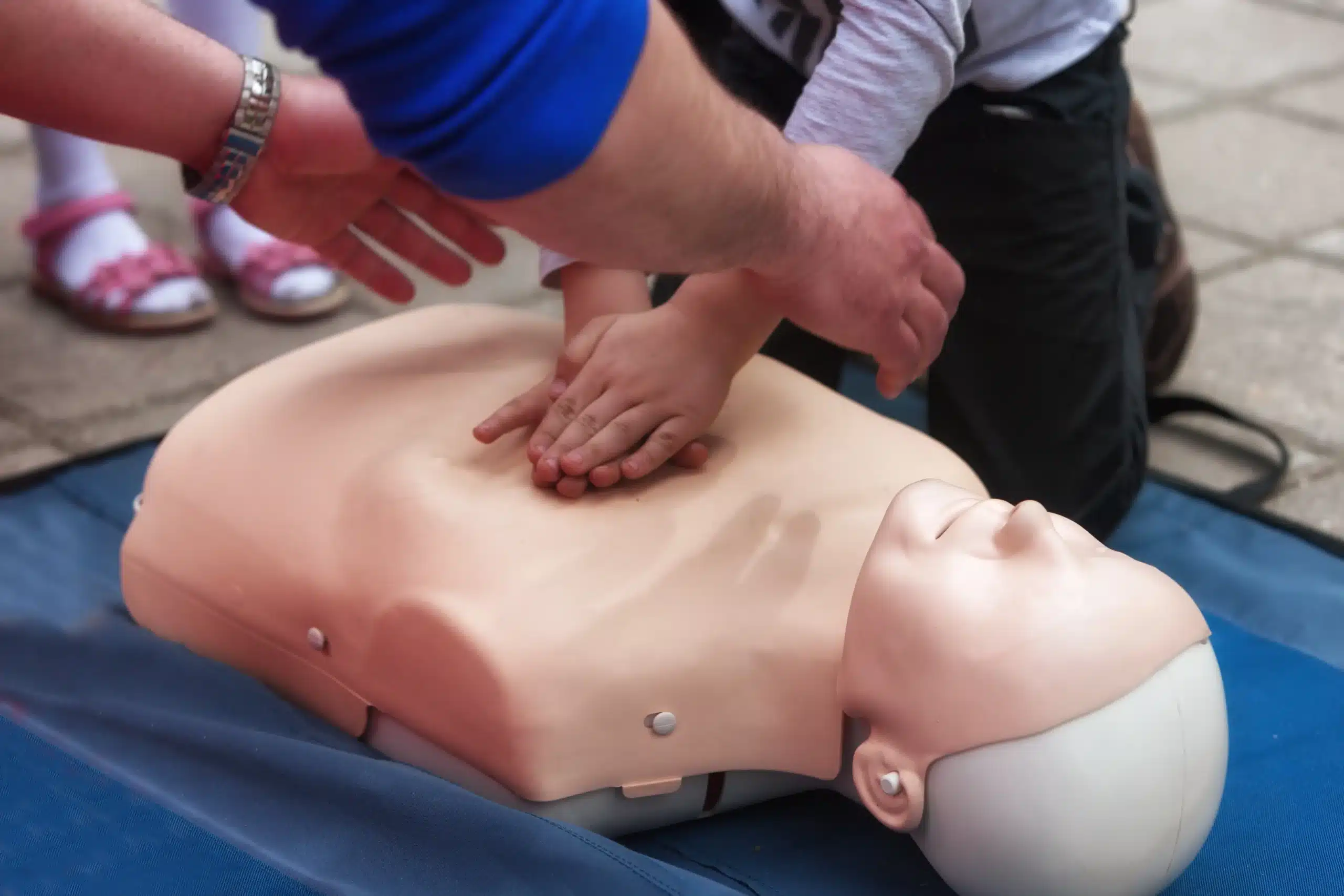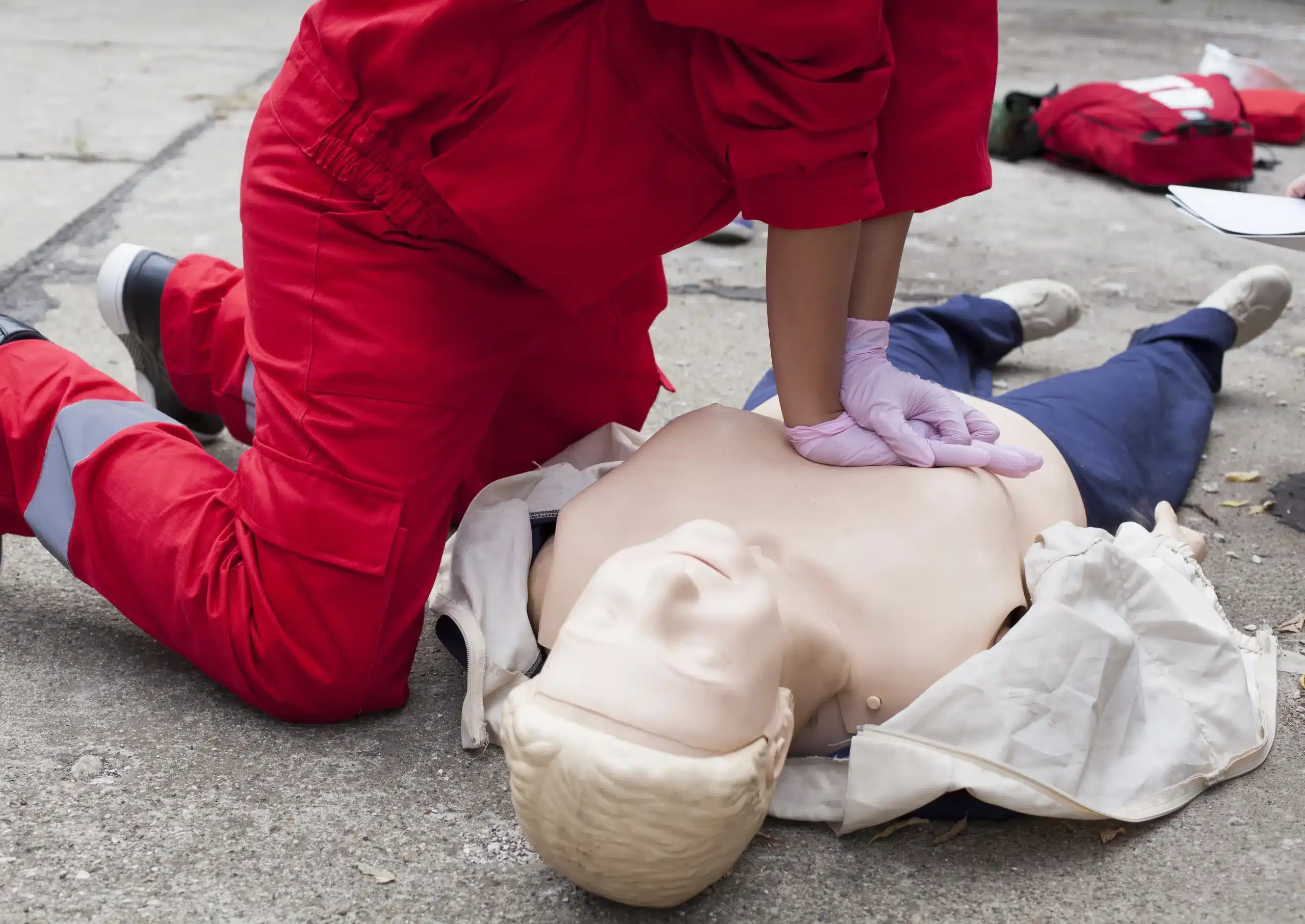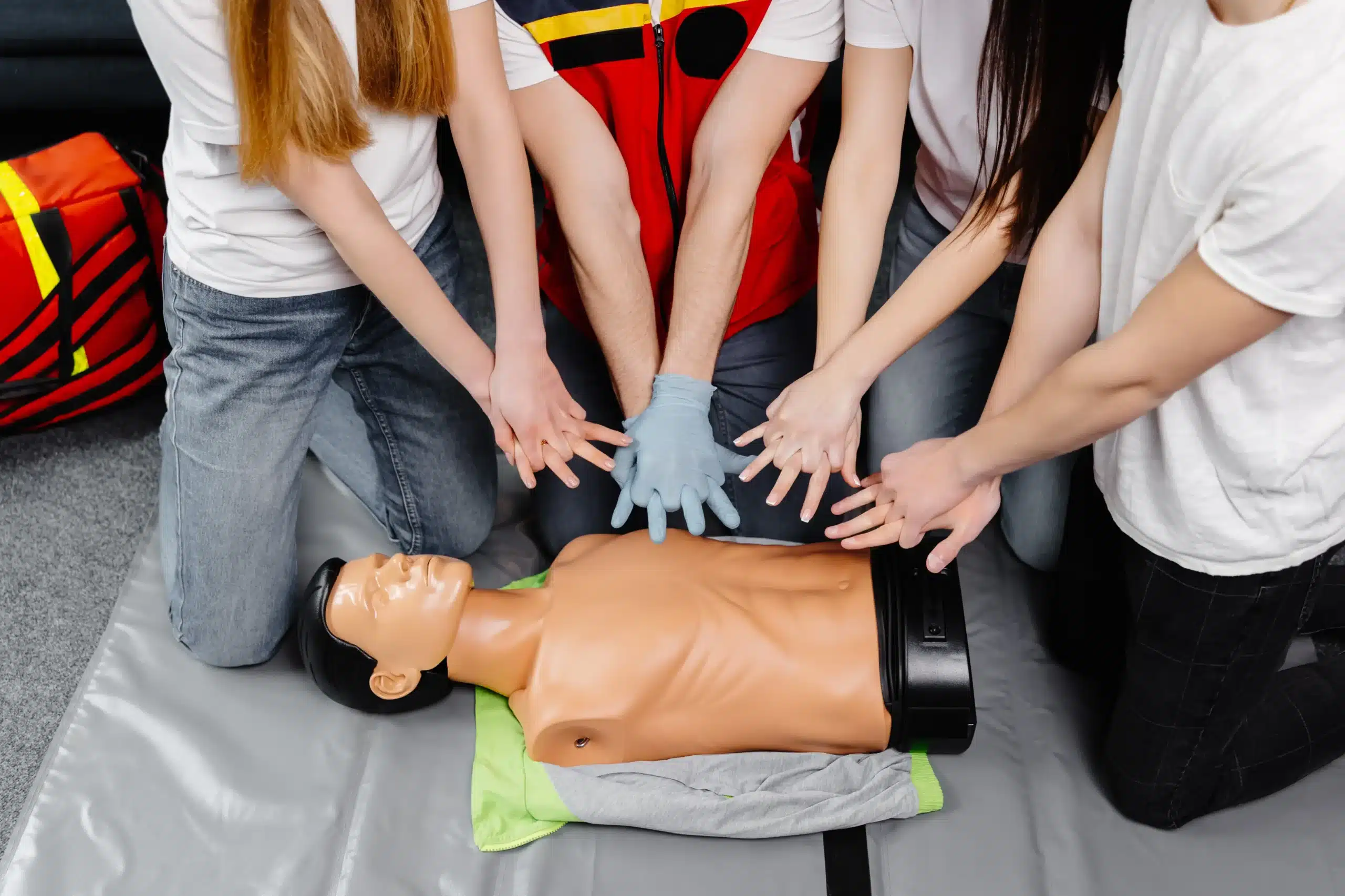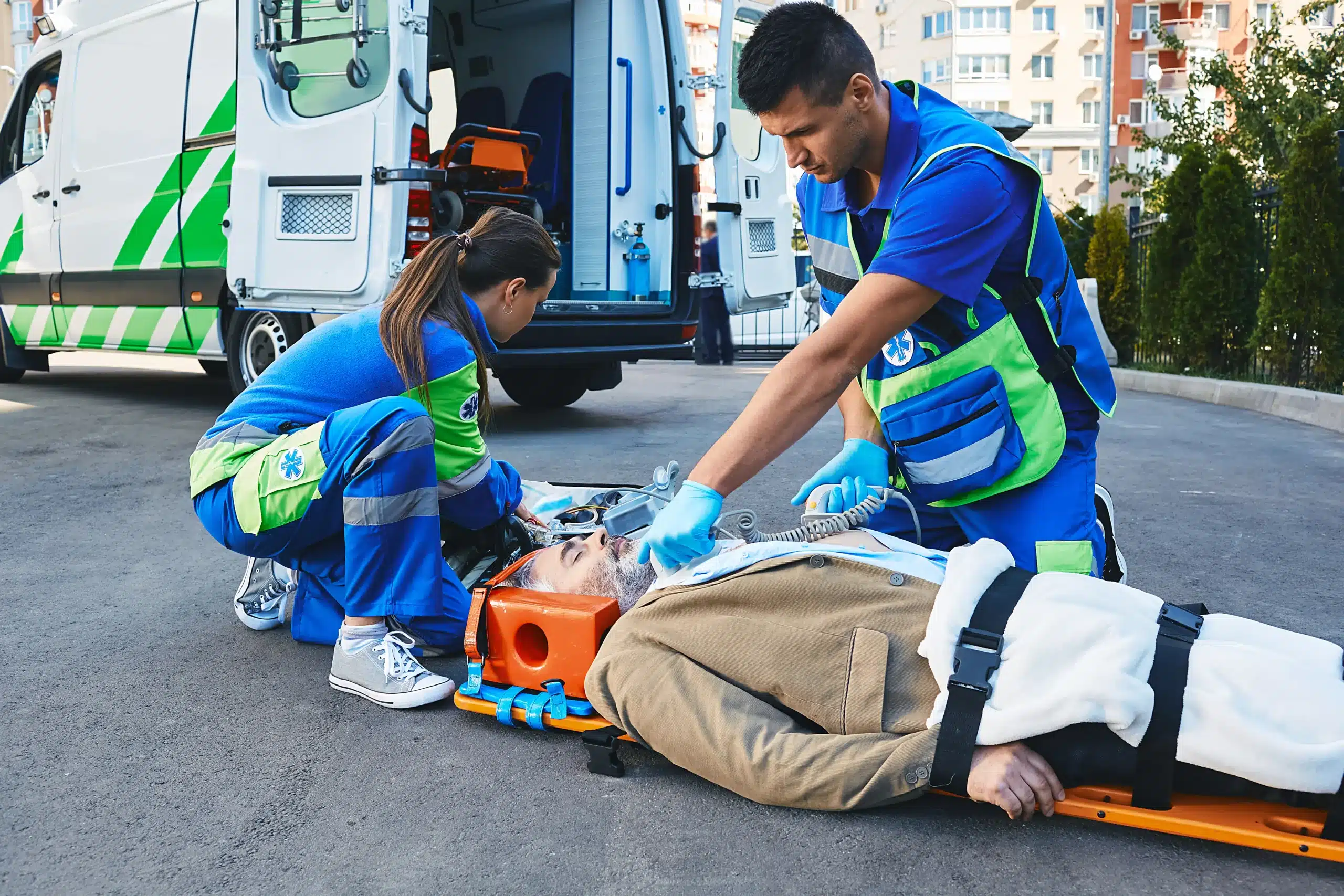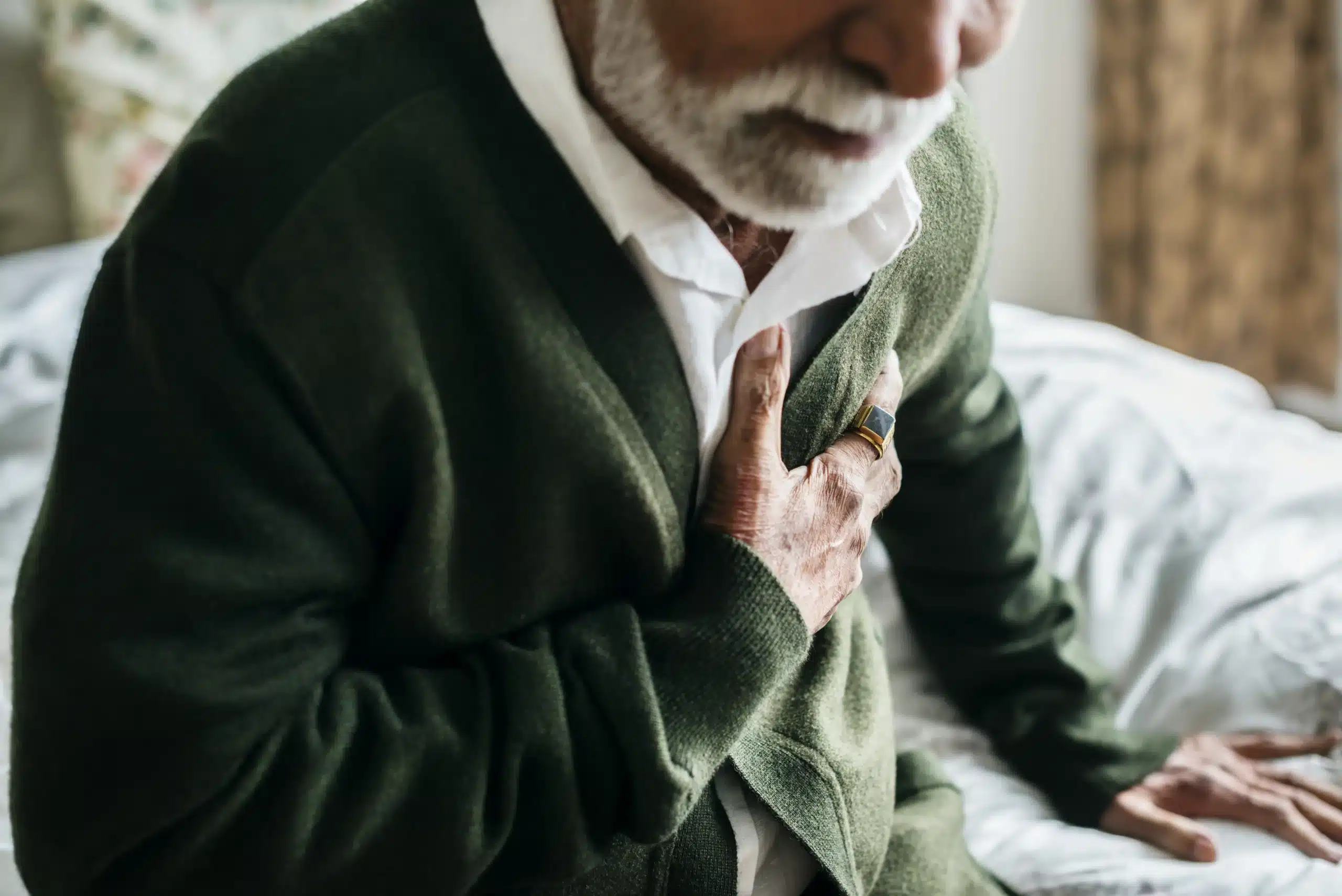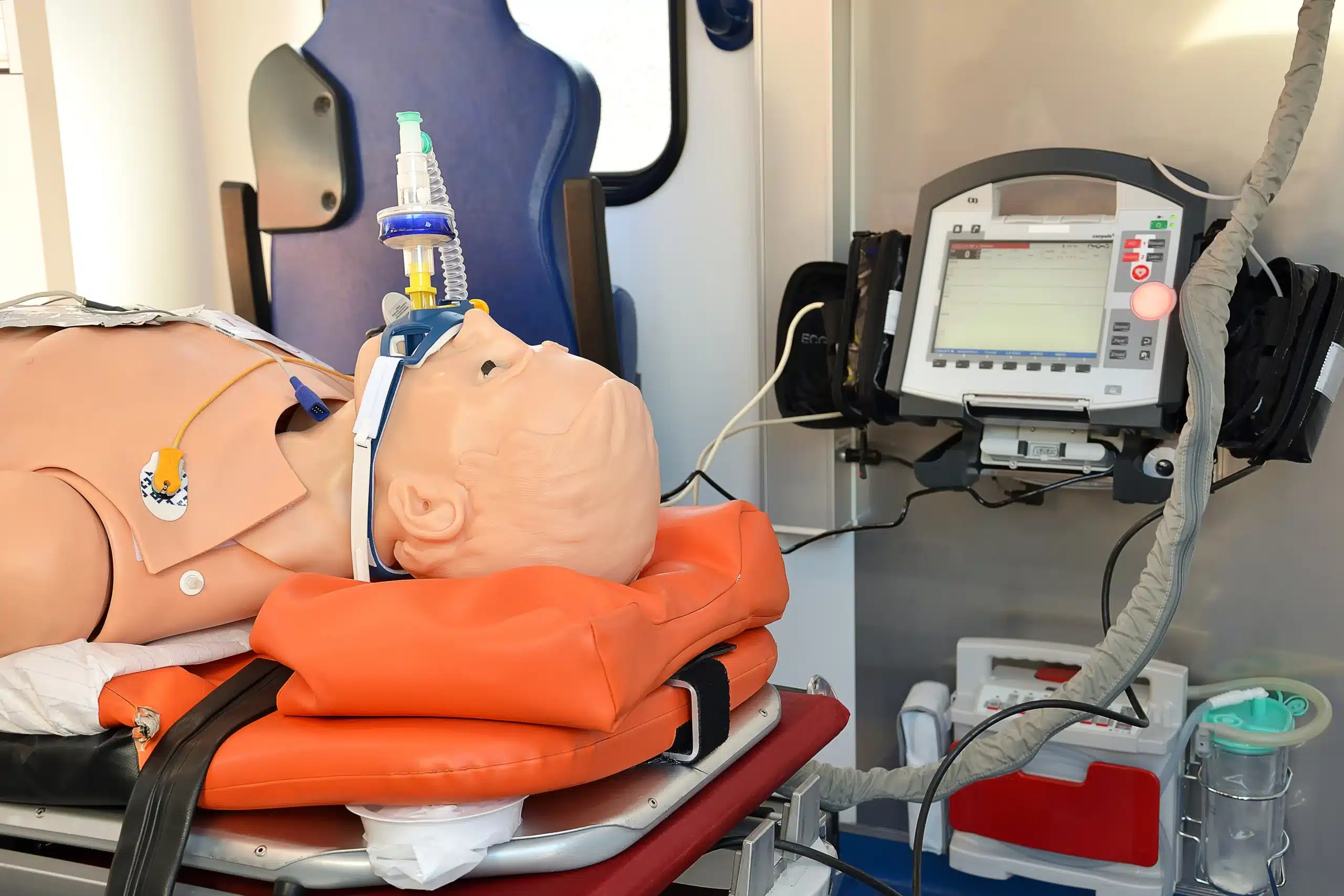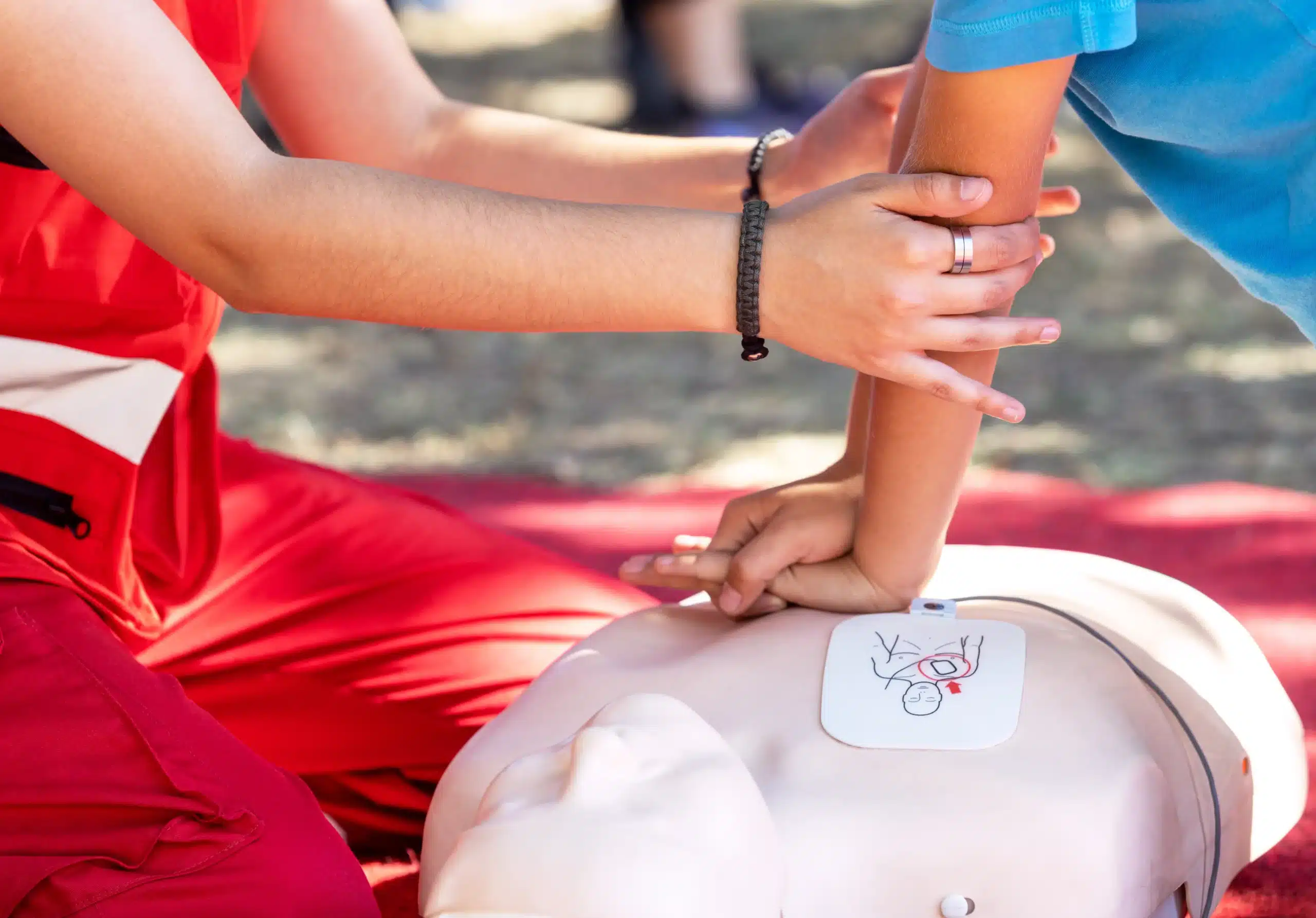Empowering yourself with life-saving skills starts with finding the right CPR training in Stockton. This guide explores the various CPR courses available, including BLS, ACLS, PALS, and Heartsaver certifications. We’ll also discuss the importance of choosing a reputable training provider, what to expect during your training, and the overall impact of CPR training on the Stockton community. Whether you’re looking to advance your career or simply want to be prepared for any situation, this guide will help you navigate the world of CPR training in Stockton.
Key Takeaways
- CPR skills empower you in emergencies: Whether you’re a healthcare professional, childcare provider, or simply want to be prepared, CPR training equips you to confidently handle medical emergencies and potentially save lives. Find the right course level for your needs.
- Select a CPR training provider carefully: AHA-certified courses, experienced instructors, and flexible scheduling options are key factors to consider. Smaller class sizes and positive student reviews can also enhance your learning experience.
- Prepare for your training with a few simple steps: Dress comfortably, bring a notebook and pen if desired, and review any pre-course resources. Contact your chosen provider with any questions or concerns beforehand.
What is CPR Training and Why is it Important?
CPR training gives you the skills to respond confidently during medical emergencies. It empowers you to take action when someone’s life is on the line, potentially making all the difference. Learning CPR can double the survival rate of someone experiencing an out-of-hospital cardiac arrest. With over 500,000 cardiac arrests occurring annually in the US, having CPR training becomes incredibly important.
Finding the right training provider is key. Look for certified instructors who create a supportive learning environment and offer hands-on practice. Both the American Heart Association (AHA) and the American Red Cross offer various CPR certifications, including CPR/AED and First Aid, for adults, children, and infants. Whether you’re a medical professional, childcare provider, or someone who wants to be prepared, CPR training provides invaluable, potentially life-saving skills.
CPR Courses in Stockton
Finding the right CPR course can feel overwhelming with so many options. This section breaks down the different types of CPR training available in Stockton, so you can choose what works for you.
Basic Life Support (BLS)
The BLS course covers core life-saving skills for healthcare providers and other professionals. It includes CPR for adults, children, and infants, along with techniques for using an AED and relieving choking. BLS certification is often a job requirement for many healthcare roles and provides a strong foundation for anyone who wants to be prepared for emergencies. This article reinforces that these courses benefit both healthcare professionals and the general public.
Advanced Cardiovascular Life Support (ACLS)
ACLS training builds on the skills learned in BLS. It focuses on advanced life support techniques for adults experiencing cardiac arrest and other cardiovascular emergencies. This course is designed for healthcare professionals who are part of resuscitation teams in hospitals and other clinical settings. Tracy CPR Classes offers high-quality ACLS training with flexible scheduling and a supportive learning environment.
Pediatric Advanced Life Support (PALS)
PALS certification focuses on the specialized skills needed to respond to life-threatening emergencies in infants and children. Like ACLS, this course is geared towards healthcare providers who work in pediatric emergency or critical care settings. Safety Training Seminars offers a PALS course in Tracy, CA, along with other American Heart Association certifications.
Heartsaver CPR/AED
Heartsaver courses teach CPR and how to use an AED. They’re designed for anyone who doesn’t need a healthcare provider-level certification, such as community members, teachers, coaches, and workplace responders. These courses cover essential life-saving techniques for adults, children, and infants.
First Aid and CPR Combination Courses
Combining First Aid and CPR training allows you to handle a broader range of emergencies. These courses teach you how to manage injuries, illnesses, and other medical emergencies, in addition to performing CPR. This combined approach to emergency preparedness empowers you to confidently handle various situations. According to this resource, a combined CPR and First Aid training session can range from four to eight hours.
Top CPR Training Providers in Stockton
Finding the right CPR training provider is crucial for receiving quality instruction and obtaining a valid certification. Here are a few reputable options in Stockton:
Tracy CPR Classes
Tracy CPR Classes offers various American Heart Association (AHA) courses, including BLS, ACLS, PALS, and First Aid. They prioritize high-quality training and convenient scheduling to accommodate busy lifestyles. They also offer specialized courses like the EMSA Child Care Health & Safety program. Serving Stockton, Tracy, and Lodi, they are committed to equipping individuals with the skills to respond confidently in emergencies. Learn more about their BLS certification. For childcare providers, explore their EMSA program. Tracy CPR Classes also maintains a CPR directory for Northern California.
American Red Cross
The American Red Cross is a well-known provider of CPR training in Stockton. They offer various courses, including CPR/AED, First Aid, and BLS, with flexible learning options such as in-person, online, and blended formats. Find a course that fits your needs. Their established reputation and comprehensive curriculum make them a reliable choice for CPR certification.
Safety Training Seminars
Safety Training Seminars provides AHA-certified CPR and First Aid training, covering BLS, ACLS, PALS, and more. They offer a wide range of course times, making it easier to fit training into your schedule. Visit their site for information on schedules and courses. Their focus on flexible scheduling and comprehensive training makes them a practical option for individuals and groups.
Professional CPR
Professional CPR has offered CPR, First Aid, BLS, and AED training since 2001. They serve Stockton and surrounding areas, providing courses for individuals and organizations. Learn more about their experience and commitment to quality instruction. Their long-standing presence in the field makes them a trusted resource for CPR training.
What to Expect During CPR Training
Knowing what to expect can help you feel prepared and confident going into your CPR training. Here’s a look at the typical process:
Course Duration and Format Options
CPR courses are designed to fit various schedules and learning preferences. You’ll find options for in-person CPR classes, online learning, or a blended format combining both. The course length typically ranges from two to four hours, depending on the specific type of certification you’re pursuing. For example, a basic CPR course might be shorter, while a more advanced course like ACLS could take longer. Many training centers offer flexible scheduling, with classes available on evenings and weekends.
Hands-On Practice and Equipment
In-person CPR training emphasizes hands-on learning. You’ll practice essential techniques on mannequins, giving you a realistic experience. This practical training helps build muscle memory and confidence in your ability to perform CPR in a real emergency. Quality training providers, like Tracy CPR Classes, ensure you have access to the necessary equipment and a supportive learning environment.
Certification Process and Validity
Upon successful completion of your CPR course, you’ll receive a certification card. This card validates your training and is typically valid for two years. Make sure to keep your certification current to maintain your skills and demonstrate your commitment to providing assistance in emergencies. Renewal courses are available to refresh your knowledge and skills.
Cost of CPR Training
CPR training is an investment in your skills and ability to respond to emergencies. Understanding what influences pricing can help you find a course that fits your budget and learning goals.
Average Cost Range for Different Courses
The cost of CPR training varies depending on the course type and the training provider. Basic CPR and First Aid certification can start around $75, while more advanced courses like ACLS and PALS typically range from $150 to $250. Combination courses covering both CPR and First Aid often fall somewhere in between. Remember, these are estimates, and prices can differ based on location and the training center’s specific offerings. For the most accurate pricing, contact CPR training providers directly. You can explore the courses and pricing offered by Tracy CPR Classes to better understand local costs.
Factors Affecting Price
Several factors contribute to the overall cost of CPR training. The certification level you pursue plays a significant role. Advanced courses like PALS (Pediatric Advanced Life Support) and ACLS (Advanced Cardiovascular Life Support) often have a higher price tag because of the specialized knowledge and skills they require. Whether you choose in-person or online training can also influence the cost. In-person classes offer hands-on practice with certified instructors, which can contribute to higher pricing. Finally, including additional materials, like manuals or pocket masks, can affect the total cost.
Group Rates and Promotional Discounts
Many CPR training providers offer group discounts, making it a cost-effective option for workplaces, community groups, or families training together. Safety Training Seminars may offer discounted rates for group bookings. Some providers also have promotional discounts throughout the year, so keep an eye out for special offers. Contact training centers directly to ask about potential discounts or negotiate pricing for larger groups. A little research can help you find affordable, high-quality CPR training.
Choose the Right CPR Training Provider
Finding the right CPR training provider is crucial for a valuable learning experience. Here’s what to consider:
Accreditation and Certification Standards
Look for providers offering American Heart Association (AHA)-certified courses. These courses meet rigorous standards and are widely recognized. AHA certification is often a requirement for many healthcare jobs and other professional settings. Tracy CPR Classes offers AHA-certified courses in CPR, BLS, ACLS, PALS, and First Aid, ensuring high-quality training.
Instructor Qualifications and Experience
Experienced instructors can make all the difference. Instructors should have a strong background, not only in teaching but also in real-world emergency situations. Check if the training center highlights instructor qualifications. Tracy CPR Classes emphasizes instructor experience and provides detailed feedback to help students refine their techniques. This personalized approach builds confidence and improves skill level.
Class Size and Scheduling Flexibility
A smaller class size allows for more personalized attention and a comfortable learning environment. Flexible scheduling is also essential. Look for providers that offer weekend or evening classes, and various course formats. Tracy CPR Classes offers a range of scheduling options.
Student Reviews and Testimonials
Reading reviews and testimonials offers valuable insights into a provider’s strengths and weaknesses. Look for comments about the instructor’s teaching style, course materials, and the overall learning experience. Positive reviews often mention an instructor’s knowledge, passion, and ability to create a relaxed atmosphere. These firsthand accounts can help determine if a provider is right for you.
Prepare for Your CPR Training
Getting ready for your CPR training doesn’t require a ton of prep, but a little planning goes a long way. Knowing what to expect and how to prepare can make your learning experience smoother and more effective. Here’s what you should know:
What to Bring to Class
Most CPR classes provide all the necessary training equipment, including mannequins and AED trainers. Comfortable clothing is key, as you’ll be actively participating in hands-on practice. You might want to bring a notebook and pen for notes, though many providers offer student manuals or online resources. Check with your chosen provider—Tracy CPR Classes, for example—to see if they have specific recommendations.
Pre-Course Study Materials
While pre-course study isn’t always mandatory for basic CPR classes, reviewing the American Heart Association’s resources can give you a head start. Some providers, including Tracy CPR Classes, may offer optional study materials or recommend resources to familiarize yourself with the core concepts before class. This can boost your confidence for the hands-on training. For more advanced courses like ACLS or PALS, pre-course study is often essential.
Addressing Common Concerns
It’s normal to feel a little apprehensive, especially if you’re new to medical training. Some people worry about the hands-on nature of CPR or performing in front of others. Rest assured, CPR instructors create a supportive learning environment and guide you through each step, offering encouragement and feedback. Remember, everyone is there to learn. If you have specific concerns, contact your training provider beforehand. They can answer your questions and help ease any anxieties. Tracy CPR Classes emphasizes this supportive environment, so don’t hesitate to reach out if you need reassurance.
The Impact of CPR Training in Stockton
CPR training goes beyond simply learning a life-saving skill; it creates a ripple effect, impacting individuals and the community. Here in Stockton, the benefits are particularly significant.
Career Advancement Opportunities
For many professions in Stockton, CPR certification isn’t just recommended—it’s often a job requirement. Teachers, childcare providers, coaches, and many healthcare professionals need this training to meet licensing or employment standards. Earning your CPR certification shows a commitment to safety and preparedness, making you a more competitive candidate and potentially opening doors to new opportunities. It also gives you the confidence to handle emergencies effectively, a valuable asset in any workplace.
Personal Emergency Preparedness
Learning CPR empowers you to respond effectively during medical emergencies. Consider this: you’re statistically more likely to use CPR outside of a hospital. Whether it’s a family member at home or a stranger in a public place, having the skills to administer CPR can be life-saving. Studies show that CPR can significantly increase a person’s chance of survival after an out-of-hospital cardiac arrest. Finding the right training provider, one that emphasizes hands-on practice and a supportive learning environment, is key. Quality CPR training builds confidence and competence.
Contributing to Community Safety
When more people in Stockton know CPR, our community becomes a safer place. These skills create a network of prepared individuals ready to respond when needed. CPR and first aid training gives community members the knowledge and skills to act quickly and confidently in critical situations, potentially saving lives. This strengthens our community’s resilience and preparedness for the unexpected. Every certified individual becomes a vital link in the chain of survival.
Related Articles
- Why CPR is More Important Than Ever
- Find CPR Classes in Stockton: A Comprehensive Guide
- Get BLS Certified in Stockton: Top Training
- Advanced Cardiac Life Support (ACLS) in Tracy
- Pediatric Advanced Life Support (PALS) Training in Tracy
Frequently Asked Questions
What’s the difference between BLS and Heartsaver CPR?
BLS (Basic Life Support) is designed for healthcare providers and those in professional rescuer roles, covering a broader range of skills like using a bag-valve mask and working as a team. Heartsaver courses focus on essential CPR and AED use for anyone who wants to be prepared for emergencies, even without a medical background. Think of BLS as the professional level and Heartsaver as the everyday hero level.
How long does CPR certification last, and how do I renew it?
CPR certifications are typically valid for two years. To renew, you’ll need to take a recertification course before your current certification expires. This refresher course covers any updates to guidelines and ensures your skills are up-to-date. Contact your original training provider or another certified center to find a recertification class.
What if I’m nervous about the hands-on portion of the training?
It’s totally normal to feel a little apprehensive about the hands-on parts of CPR training. Know that CPR instructors create a supportive and encouraging environment. They’ll guide you through each step, provide feedback, and help you build confidence. Everyone is there to learn, and instructors understand that some people might feel hesitant at first. Don’t let nerves hold you back from gaining these life-saving skills.
Are online CPR courses as effective as in-person classes?
Online CPR courses offer a convenient way to learn the basics, but they typically don’t include the same level of hands-on practice with equipment and feedback from an instructor. While online courses can be a good starting point, in-person training is generally recommended, especially for those who anticipate needing to use CPR in a professional setting. The hands-on experience builds muscle memory and confidence that online courses often can’t replicate.
How do I choose the right CPR training provider in Stockton?
Look for providers offering American Heart Association (AHA) certified courses, as these meet established standards. Check instructor qualifications and experience, and consider class size and scheduling flexibility. Reading reviews from past students can also give you a sense of the training provider’s quality and teaching style. Don’t hesitate to contact different providers and ask questions to find the best fit for your needs.
